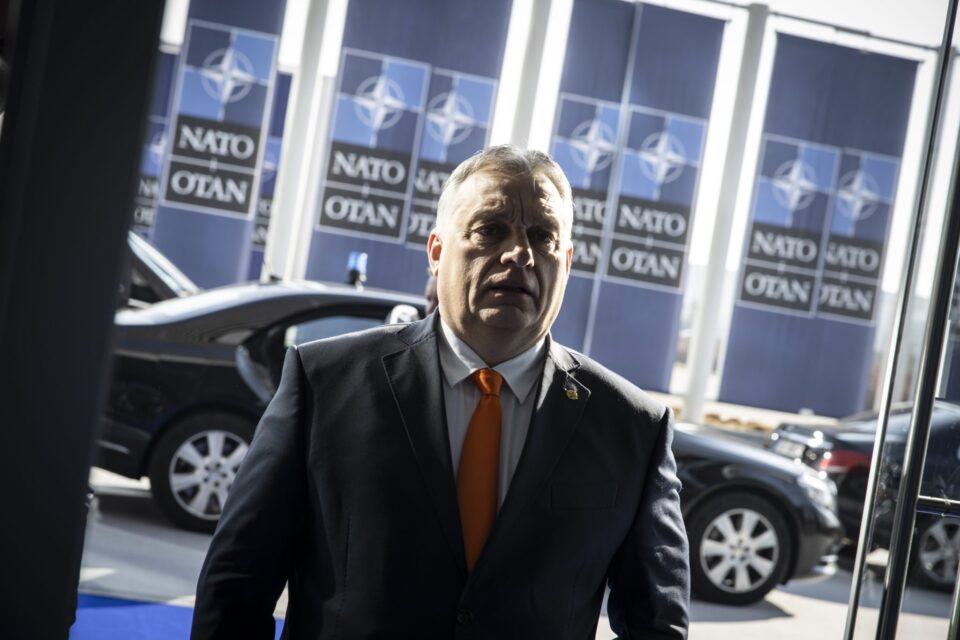The Russian-Ukrainian war, the sanctions and the economic losses caused by them, the inflation, and the foreign financing of the Hungarian opposition – these were the topics of the Friday morning radio interview with Hungary’s prime minister, the V4 news agency writes.
German Chancellor Olaf Scholz has authorised for the delivery of Leopard 2 tanks, after which Ukraine asked for fighter jets – the host of the programme said to kick off the interview with Hungarian Prime Minister Viktor Orban on Friday morning. The premier responded to it by saying that Germany was initially only willing to send helmets, not lethal equipment, because they considered the latter a way to plunge into the war. Now we are at sending tanks, Viktor Orban pointed out.
It is clearly visible that if you don’t put your foot down, you will be dragged into the conflict, the premier stated, adding that if a leftist government had been elected last year, Hungary would already be in the war.
People, however, made a clear choice between war and peace, Viktor Orban said, adding that Hungary’s interest is therefore to stay out of the war. Hungary would do its utmost for peace and will not be drawn into the conflict.
The war should be localised rather than internationalized, he said.
Regarding the pressure is on the government in the current situation, PM Orban said: “they are hitting, beating, kicking and biting us”, adding that they are using all means in their disposal to force Hungary into the war, and the foreign-funded Hungarian left is on the side of the war.
For us, Hungary’s security comes first, Viktor Orban said, explaining that elementary human morality also demands a ceasefire and peace negotiations.
The Hungarian premier also spoke about the effects of the sanctions. He said that the German economy will suffer a loss of 175 billion euros in 2023. Based on that, they also calculated the losses incurred by Hungary.
This year, Hungary will lose 3764 billion forints (9 billion euros). This is lost growth, and amounts to some 4.8 per cent of the country’s GDP, the prime minister said, adding that the government will not block the sanctions when vital Hungarian interests are not affected, but Hungary will veto sanctions on energy.
“We have done so for oil, we are doing so for natural gas, and we will do so for nuclear energy,” the PM pointed out, stressing that the fact that 1.4 million people had filled in the national consultation on sanctions was a strong basis for negotiations. The Hungarian position is clear: the Hungarian people want their voices to be heard in Brussels too, Mr Orban said, noting that in Western Europe there is no room for people’s voices because anti-war voices are suppressed. This is, however, not the case in Hungary.
Commenting on the new intelligence report on foreign funding of the Hungarian left, Mr Orban said that “the lesson is that there is not only a Dollar Left, but there is also a Dollar Media”. The Left regularly takes a position that is bad for Hungary, and now it is revealed that the reason is that they are paid to do so. They represent the interests of their masters in return for money.
“I hope that at the end of the investigation, it will be revealed who provided the money. The technique points to the Soros network,” PM Orban noted. Hungary should be protected against such interference, even by legislative changes, he said.
At the end of the interview, Viktor Orban touched upon the topic of inflation, which he said was a “public enemy.” It dominates public thinking, and the main task for the government is to bring inflation down. The cabinet has already given the pill to the economy, the premier said, adding that the rate of inflation is expected to start to fall from March and to return to single digits in December. He also stated that sanctions that would increase inflation would not be accepted.






Comments are closed for this post.